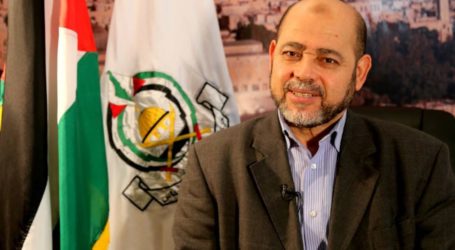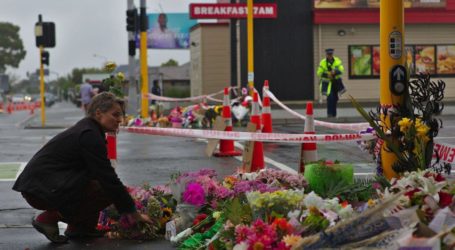ISRAEL ‘UNDERMINING’ US’ EFFORTS IN EGYPT: DIPLOMATS
 Cairo, 11 Shawwal 1434/18 August 2013 (MINA) – The Egyptian strongman General El-Sissi has been in ‘heavy’ contact with Jerusalem since Morsi’s ouster, says report in NY Times, quoting unnamed diplomats.
Cairo, 11 Shawwal 1434/18 August 2013 (MINA) – The Egyptian strongman General El-Sissi has been in ‘heavy’ contact with Jerusalem since Morsi’s ouster, says report in NY Times, quoting unnamed diplomats.
Abdel-Fattah el-Sissi, the general who orchestrated the military takeover in Egypt, has been in “heavy communication” with Israeli colleagues, who have been “undercutting” Western diplomatic efforts vis-à-vis Cairo, according to unnamed Western diplomats quoted in a report published Saturday by the New York Times.
El-Sissi, who ousted former Egyptian president Mohammed Morsi and replaced him with an interim government led by Hazem el-Beblawi, was said to have cultivated close ties to Israel during his tenure as head of military intelligence in Egypt.
The 58-year-old general and his close circle, said the report, kept in close contact with Israel even as fierce clashes erupted on the streets of Cairo, killing 173 over the weekend.
Foreign diplomats told the New York Times that they believed Israel was “undercutting” Western diplomatic efforts by telling el-Sissi that the US would not cut off its aid to Egypt, despite threats to the contrary.
They said Jerusalem had undermined Washington’s efforts to forestall the violent, chaotic deterioration from democracy to autocracy in Egypt, spearheaded by the generals who had ousted Morsi – the same generals who had had close relationships with Western powers for decades and who enjoyed the support of Israel, Saudi Arabia and other Arab states who viewed them as less dangerous than their Islamist counterparts.
“When Senator Rand Paul, Republican of Kentucky, proposed an amendment halting military aid to Egypt, the influential American Israel Public Affairs Committee sent a letter to senators on July 31 opposing it, saying it ‘could increase instability in Egypt and undermine important U.S. interests and negatively impact our Israeli ally,’” the Times report said. “Statements from influential lawmakers echoed the letter, and the Senate defeated the measure, 86 to 13, later that day.
Washington, meanwhile, tried to press Cairo for a transition back to civilian rule and freedom for Islamist leaders, but was warned again and again of the danger posed by the Muslim Brotherhood, according to Times of Israel quoting NY Times report as monitored by Mi’raj News Agency (MINA), Sunday (18/8).
However, not even the best Western efforts – including US President Barack Obama’s decision Thursday to opt out of Egypt’s Bright Star war game — could put a stop to the bloodshed, which went on despite the diplomats’ warnings and entreaties.
Egypt has been wracked by mass protests and counterprotests since the week of June 30, when opponents of Morsi took to the streets by the hundreds of thousands and called for his resignation. Following Morsi’s forced resignation, Muslim Brotherhood supporters and secular opponents of the Islamist president have been engaging in bloody clashes throughout Egypt.
Egypt’s Interior Ministry said in a statement Saturday that a total of 1,004 Brotherhood members were detained in raids across the country and that weapons, bombs and ammunition were confiscated with the detainees.
The Muslim Brotherhood-led anti-military coalition has called for a week of protests, further escalating unrest in the country. The coalition says that they won’t back down until it topples the government installed by the military — which overthrew Morsi on July 3.
Meanwhile, hundreds remained inside the al-Fatah mosque in Cairo on Saturday morning after barricading themselves inside overnight. They shoved furniture against the doors to stop police from breaking their way in.
“The million-dollar question now,” one American military officer was quoted as saying, “is where is the threshold of violence for cutting ties?”
The Muslim Brotherhood group, founded in 1928, came to power a year ago when its leader Mohammed Morsi was elected in the country’s first free presidential elections. The election came after the overthrow of longtime autocratic president Hosni Mubarak.
The Brotherhood rocketed to power after decades of being a banned group in Egypt. While sometimes tolerated, its leaders often faced long bouts of imprisonment. (T/P03/E1)
Mi’raj News Agency (MINA)








